Bahrain
culture, history, modernity, hospitality, cosmopolitan
About Bahrain
Culture and Religion
Where to go
How to get there
Visa Requirements
Travelling Budget
About Bahrain
Bahrain, officially known as the Kingdom of Bahrain, is a small island nation located in the Arabian Gulf. It is an archipelago consisting of 33 islands, with Bahrain Island being the largest and the main commercial and cultural center.
Bahrain has a rich history that dates back to ancient times. It was an important trading hub in the Dilmun civilization, known for its trade of pearls, metals, and textiles. Over the centuries, it has been influenced by various civilizations, including the Persians, Arabs, and Portuguese. It was also a prominent center for the Islamic civilization during the Abbasid period.
In recent times, Bahrain has become a modern and cosmopolitan country, known for its vibrant culture, thriving economy, and progressive outlook. The country has a mix of traditional Arabic and Islamic values, along with a growing global influence.
Bahrain’s economy is centered around finance, tourism, and manufacturing. It is one of the wealthiest countries in the Arab world and has a high standard of living. The country is known for its renowned financial district, the Bahrain Financial Harbor, which acts as a regional financial hub.
The people of Bahrain are known for their warm hospitality and welcoming nature, making it a popular destination for tourists. The country offers a unique blend of modern infrastructure, ancient archaeological sites, and beautiful beaches.
Bahrain also hosts a variety of cultural and sporting events, attracting visitors from around the world. The Formula One Bahrain Grand Prix and the annual Spring of Culture festival are some of the highlights.
In terms of governance, Bahrain is a constitutional monarchy with a representative parliament. The country is known for its liberal social policies and has made strides in women’s rights, education, and healthcare.
Overall, Bahrain is a country that beautifully blends its historical heritage with modernity, creating a unique and captivating destination for locals and tourists alike.
Culture and Religion
Bahrain is a culturally diverse country with a rich history that has shaped its unique identity. The culture of Bahrain is deeply rooted in Islamic traditions and Arabic heritage, but it also showcases influences from various civilizations that have inhabited the region over the centuries.
Islam is the official religion of Bahrain, and it plays a significant role in the daily lives of the people. Mosques are scattered throughout the country, and the call to prayer can be heard throughout the day. The Islamic calendar and religious observances, such as Ramadan, Eid al-Fitr, and Hajj, are widely celebrated.
Bahrain’s culture is characterized by a strong emphasis on family values, respect for elders, and a sense of community. Traditional Arabic hospitality is deeply ingrained in Bahraini culture, and guests are warmly welcomed and treated with generosity.
The traditional clothing in Bahrain reflects the Islamic modesty and cultural heritage. Men typically wear a dishdasha, a loose-fitting ankle-length garment, while women often wear an abaya, a loose black cloak, along with a headscarf called a hijab.
Bahrain has a thriving arts and music scene, with traditional forms like pearl diving songs and folk dances still celebrated. Modern art galleries and music festivals have gained popularity in recent years, showcasing both local and international talent.
Bahrain’s cuisine is a blend of Arabian, Persian, and Indian influences. The traditional Bahraini dishes include machbous (a spiced rice dish with meat or seafood), fish masgouf (grilled fish), and various types of kebabs. The coffee culture is also significant in Bahrain, with cardamom-infused Arabic coffee often served to guests as a symbol of hospitality.
In recent years, Bahrain has shown a commitment to cultural preservation and heritage tourism. Efforts have been made to protect and restore historic sites and museums, such as the Bahrain Fort and Bahrain National Museum, which showcase the rich history and cultural artifacts of the country.
Overall, Bahrain’s culture and religion are intertwined and form an essential part of the country’s identity. The blend of Islamic traditions, Arabic heritage, and cultural influences from various civilizations make Bahrain a fascinating and vibrant cultural destination.
Where to go
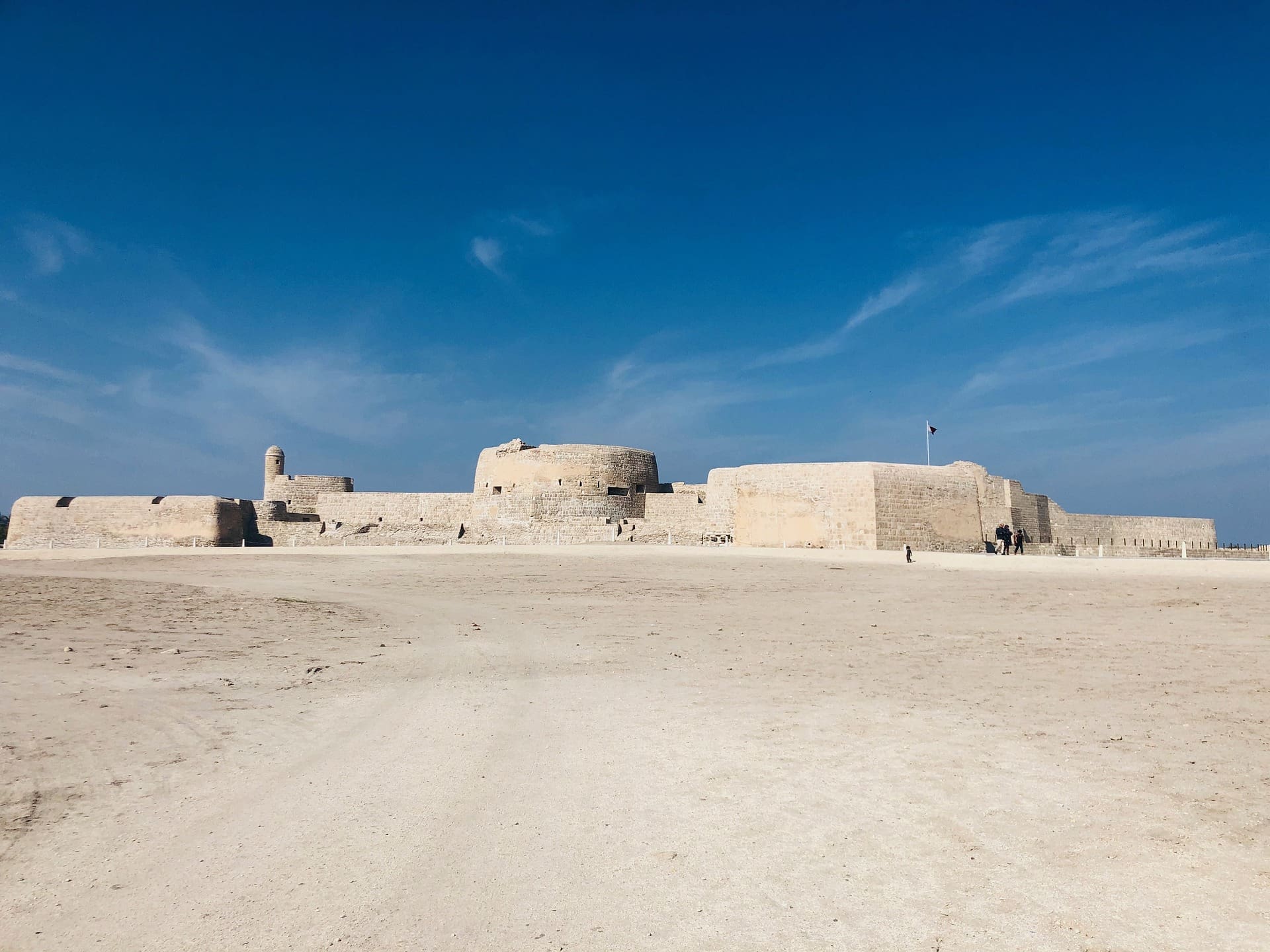
Bahrain Fort
One of Bahrain’s most iconic landmarks, the Bahrain Fort, also known as Qal’at al-Bahrain, is a UNESCO World Heritage site. It is an archaeological site that showcases the rich history of the region, with remnants of ancient civilizations and a stunning view of the surrounding area.

Manama Souq
Immerse yourself in the vibrant atmosphere of the Manama Souq, Bahrain’s traditional market. Here, you can explore narrow alleyways filled with shops selling spices, fabrics, jewelry, and traditional crafts. It’s a great place to shop for souvenirs and experience the local culture.
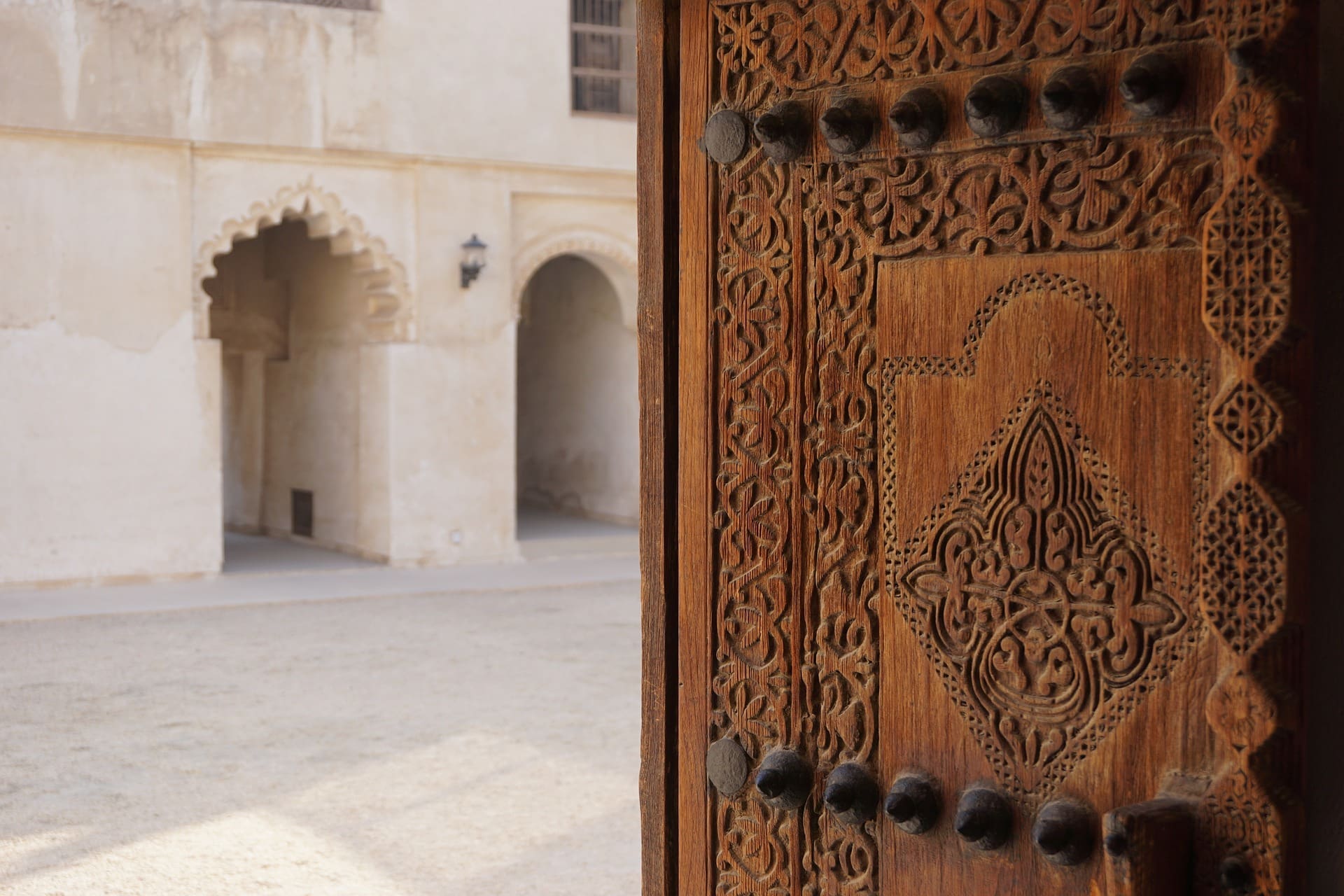
Al-Fateh Grand Mosque
Visit the Al-Fateh Grand Mosque, one of the largest mosques in the world. It features stunning architecture, intricate designs, and a peaceful ambiance. Non-Muslim visitors are welcome and can join guided tours to learn more about Islamic culture and traditions.
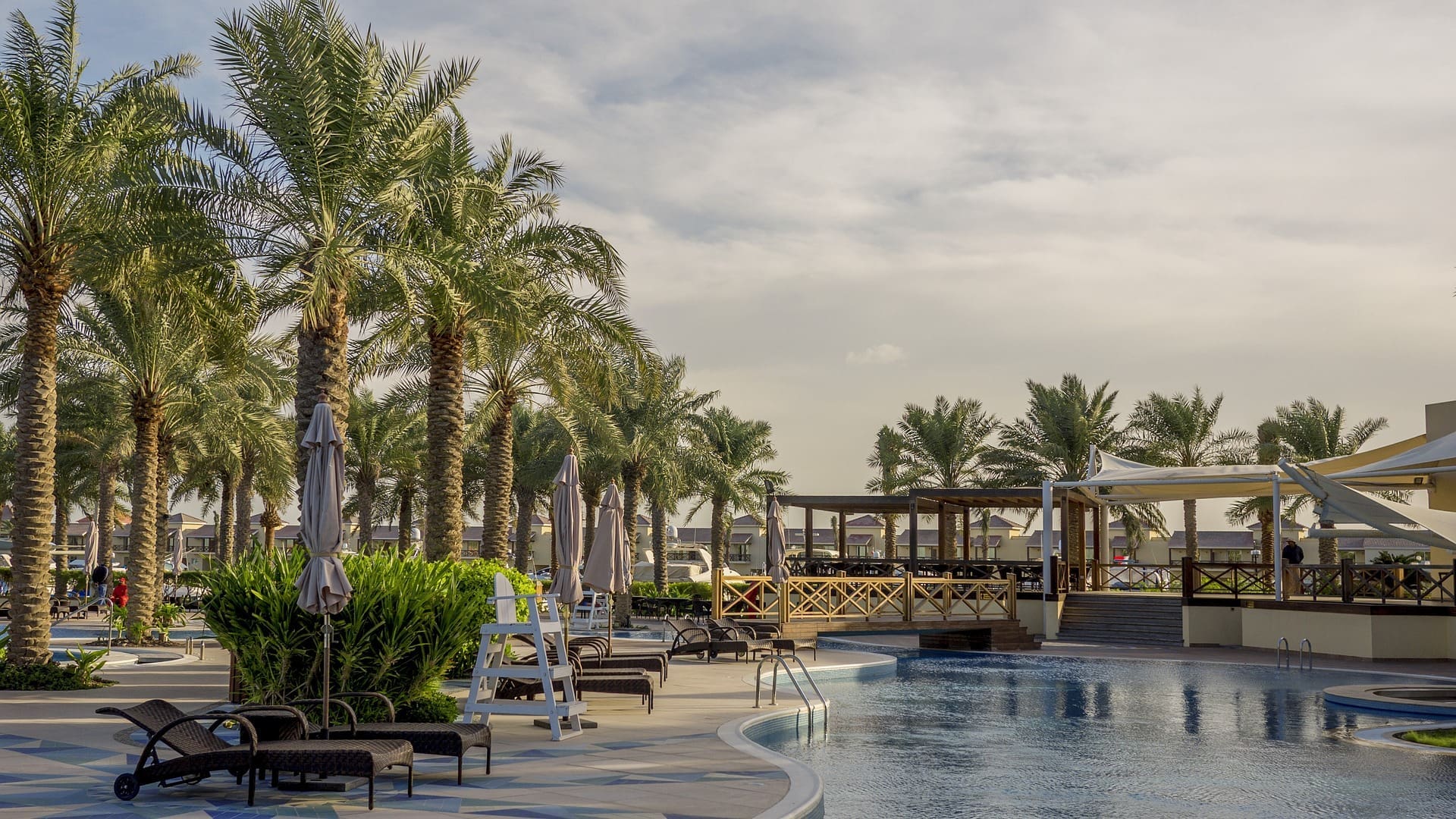
Al Dar Islands
Escape the city and head to the Al Dar Islands for a relaxing beach getaway. Located off the coast of Bahrain, these islands offer pristine sandy beaches, crystal-clear waters, and various water activities like snorkeling, kayaking, and jet skiing. You can also enjoy a delicious seafood meal at one of the island’s restaurants.
Note: These highlights offer a glimpse into Bahrain’s historical, cultural, and natural beauty, providing visitors with a well-rounded and memorable experience of the country.
How to get there
Getting to Bahrain is relatively easy due to its strategic location in the Arabian Gulf and its well-connected transportation infrastructure.
By Air: The most common way to reach Bahrain is by air. Bahrain International Airport is the main gateway for international travelers. It is well-served by numerous airlines from around the world, offering direct flights to major cities in Europe, Asia, Africa, and the Middle East. The airport is located on the island of Muharraq, just a short drive from the capital city, Manama.
By Sea: Another option to reach Bahrain is by sea. The country has a well-developed port at Khalifa Bin Salman Port, which receives cruise ships and cargo vessels. Several cruise operators include Bahrain as a port of call in their itineraries, allowing visitors to explore the country while on a cruise.
By Road: Bahrain is connected to Saudi Arabia by the King Fahd Causeway, a 25-kilometer bridge that links the two countries. Visitors can drive or take a taxi across the causeway to enter Bahrain from Saudi Arabia. Please note that visa requirements may vary for different nationalities, so it’s advisable to check the visa regulations before traveling.
By Land: Bahrain is also accessible by road from neighboring countries such as Kuwait, Qatar, and the United Arab Emirates. Several bus services and private car rentals provide transportation services to and from these countries.
Once in Bahrain, public transportation options include taxis, ride-hailing services, and buses. Renting a car is also a popular choice for exploring the country at your own pace.
Overall, Bahrain offers various convenient transportation options, making it easily accessible for visitors from around the world.
Visa Requirements
Visa requirements for Bahrain vary depending on the traveler’s nationality and the purpose of the visit. Here is a general overview:
Visa Exemption: Citizens of certain countries can enter Bahrain without a visa for a specific duration. These countries include the United States, United Kingdom, Canada, Australia, European Union member states, and many others. The duration of visa exemption varies, typically ranging from two weeks to three months. It is advisable to check the latest visa exemption agreements between Bahrain and your country before traveling.
Visa on Arrival: Some nationalities are eligible to obtain a visa on arrival at the Bahrain International Airport or King Fahd Causeway border crossing. The duration of the visa on arrival can range from a few days to several weeks, depending on the traveler’s nationality.
Electronic Visas: Bahrain also offers an eVisa system for eligible travelers. Visitors can apply for an eVisa online before their trip, and once approved, they can enter Bahrain by presenting their eVisa at the border. The eVisa allows for various durations of stay, depending on the purpose of the visit, such as tourism, business, or medical treatment.
Sponsorship: In certain cases, travelers may require a Bahraini sponsor, such as an inviting individual, a company, or a hotel, to obtain a visa. The sponsor will initiate the visa application process on behalf of the traveler.
It’s important to note that visa requirements and regulations can change, so it’s recommended to check with the nearest Bahraini embassy or consulate or consult the official website of the Bahraini government for the most up-to-date information regarding visa requirements for your specific nationality and purpose of visit.

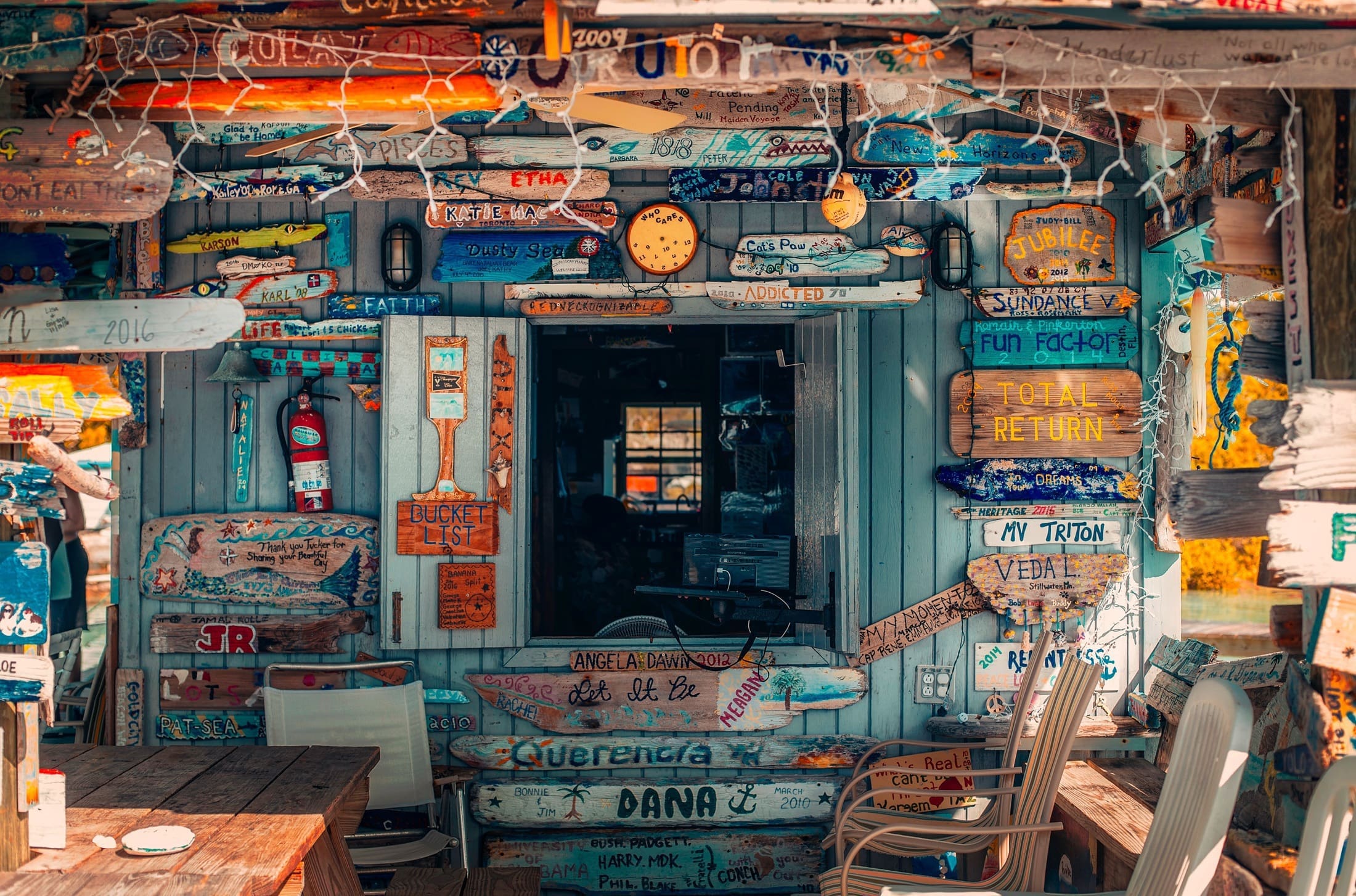
Travelling Budget
The cost of traveling to Bahrain can vary depending on several factors, including the style of accommodation, dining choices, mode of transportation, activities, and personal preferences. Here is a general breakdown of the typical expenses to consider when budgeting for a trip to Bahrain:
Accommodation: Bahrain offers a range of accommodation options, including budget hotels, mid-range hotels, and luxury resorts. Prices will vary accordingly, but on average, budget hotels can range from $50 to $100 per night, while mid-range hotels may cost around $100 to $200 per night. Luxury accommodations can be higher, starting from $200 per night and going up to several hundred dollars or more.
Meals: Dining options in Bahrain range from local street food stalls to international restaurants. On average, a meal at an inexpensive local restaurant can cost around $10 to $15, while a mid-range restaurant can range from $20 to $30 per person. Fine dining establishments can be higher, with prices varying depending on the restaurant and menu choices.
Transportation: Public transportation in Bahrain is affordable, with bus fares starting at around $0.30 per ride. Taxis and ride-hailing services are also available, with fares varying based on distance and time of day. Rental cars are another option to consider, and prices typically start from $30 per day, excluding fuel and insurance costs.
Activities: Bahrain offers a range of activities and attractions, including historical sites, museums, shopping malls, and water sports. The costs of these activities will vary, with entrance fees typically ranging from $5 to $15. It’s advisable to check individual attraction websites for up-to-date pricing.
Miscellaneous: Budget for additional expenses, such as visa fees (if applicable), travel insurance, souvenirs, and any personal expenses or preferences for shopping, spa treatments, or nightlife.
Overall, a comfortable travel budget for a trip to Bahrain could start at around $100 to $150 per person per day, which should be sufficient for mid-range accommodation, meals at local restaurants, transportation costs, and a few activities. It’s always wise to factor in additional funds for unforeseen expenses or higher-end experiences.
What makes your journey easier
Everything you need to know about what to bring to make your travels easier, more safe and fun
Be Mindfull
Gadgets
Gear
Insurance
Visa


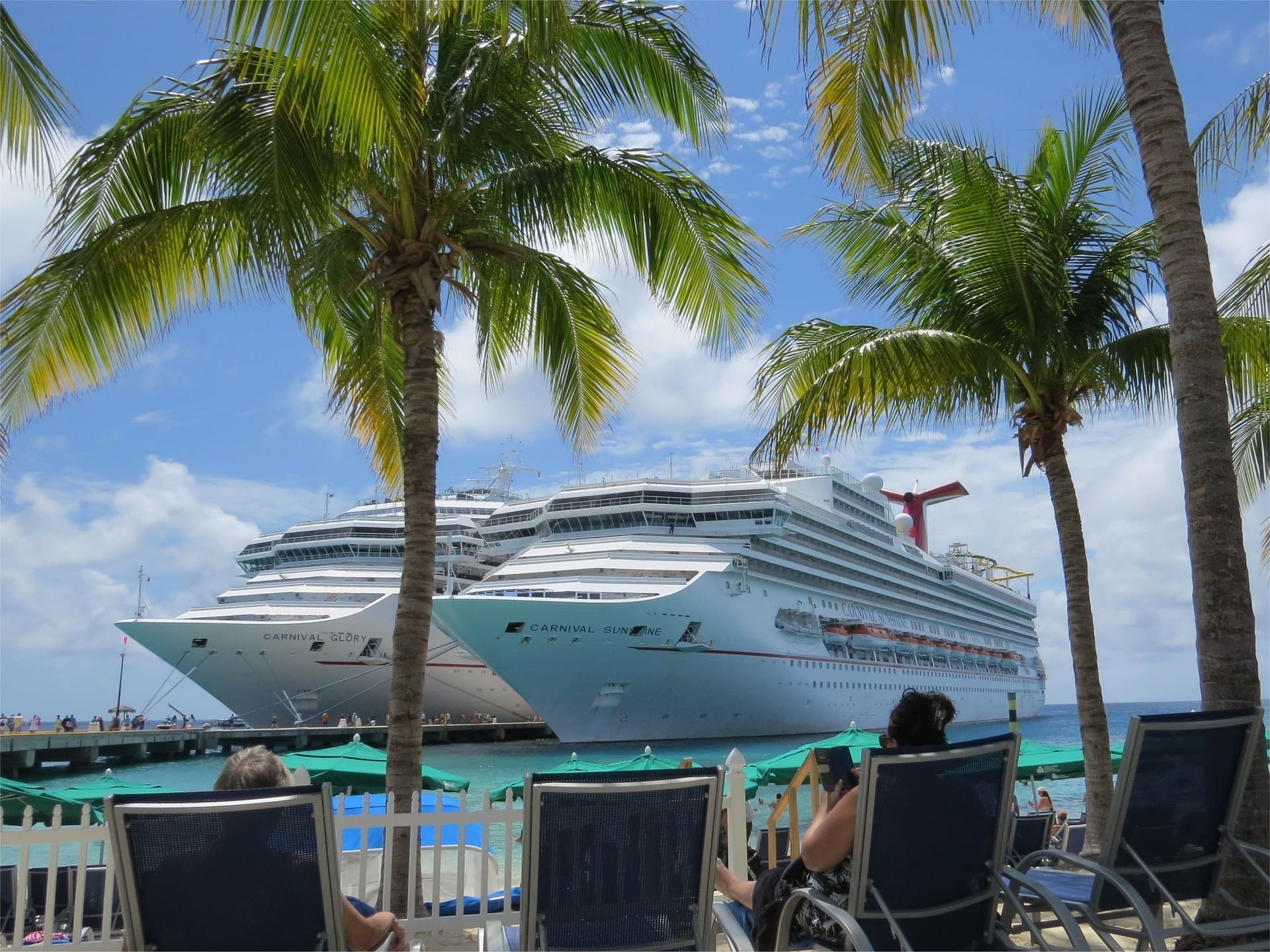










![Bahamas 6x [pig beach]](https://travelhd.nu/wp-content/uploads/2023/08/Bahamas-6x-pig-beach-scaled.jpg)
![Bahamas 3x [village]](https://travelhd.nu/wp-content/uploads/2023/08/Bahamas-3x-village-scaled.jpg)

![Bahamas 1x [nassau]](https://travelhd.nu/wp-content/uploads/2023/08/Bahamas-1x-nassau--scaled.jpg)








